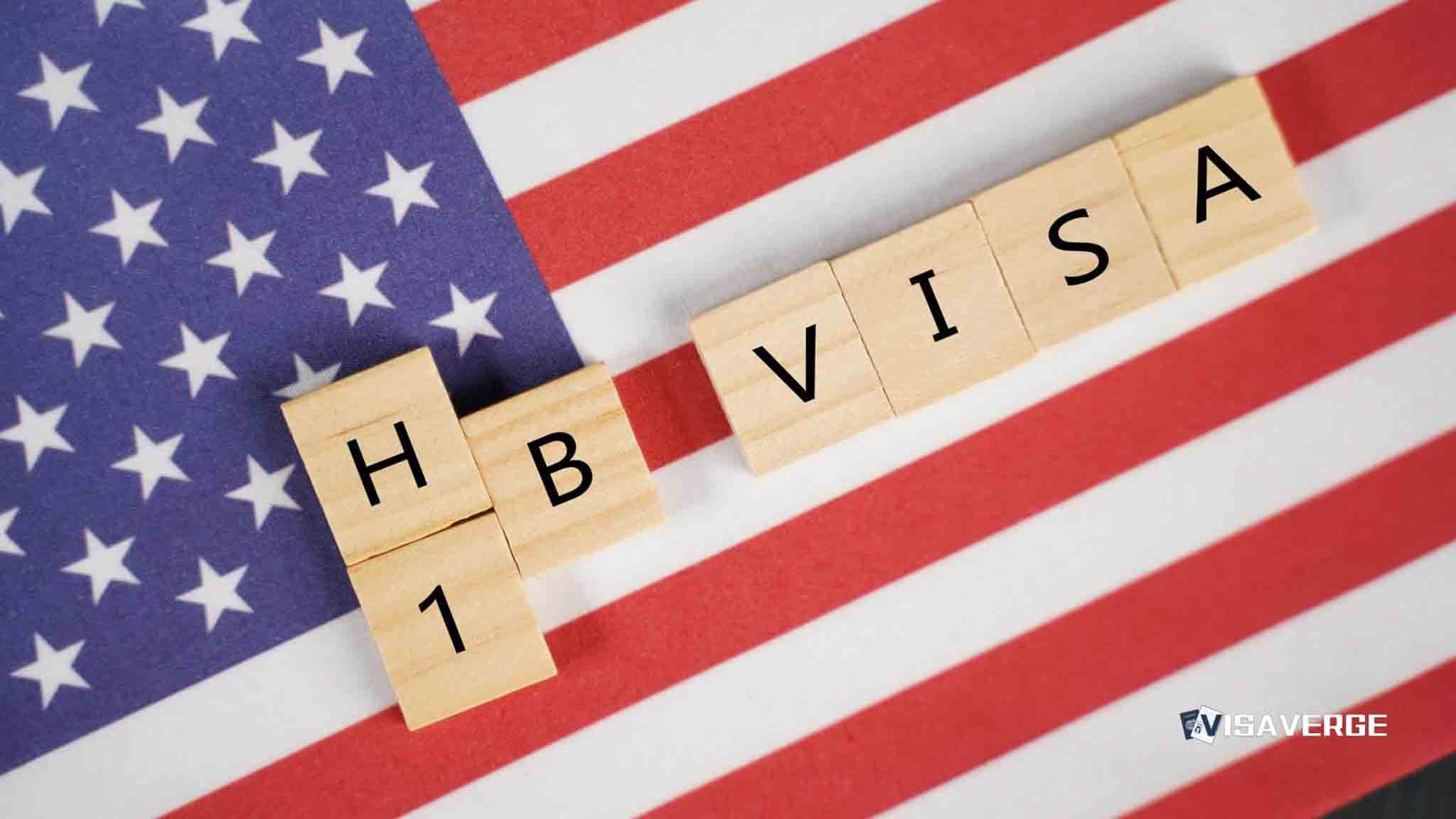(UNITED STATES) The Trump administration has directed the Department of Homeland Security to restrict decisions on H-1B petitions for specialty-occupation workers who are outside the country unless the sponsoring employer has made a $100,000 payment, a move officials describe as a renewed compliance measure to tighten controls on the visa program as of September 19, 2025. The instruction, which the administration says is designed to ensure employer accountability and may support enforcement or administrative costs, places a significant financial barrier in front of companies seeking to hire foreign professionals from abroad.
DHS is applying the policy as part of an intensified focus on H-1B eligibility and employer behavior during President Trump’s current term, with approvals constrained where the payment is not verified.

Purpose and administration rationale
The requirement marks a major escalation in the administration’s efforts to reshape the H-1B program around higher pay and advanced skills. Officials argue the program has been “oft-abused,” and the new payment serves as a filter—pushing employers to make a substantial upfront commitment before DHS moves ahead on cases filed for workers outside the United States.
According to analysis by VisaVerge.com, the step fits within a broader push to curb lower-wage roles and focus on top-tier candidates in specialty occupations.
The administration’s position is straightforward: without the $100,000 payment, DHS will restrict decisions on cases filed for foreign workers abroad, constraining approvals and slowing movement through the pipeline.
In practice, that means delayed outcomes or outright denials where the payment is missing, giving DHS leverage to prevent cases from advancing until an employer satisfies the financial condition. Officials frame the approach as a way to strengthen oversight and direct resources toward compliance while reducing what the administration sees as misuse of the visa category.
Context: H-1B environment in 2025 and historical comparison
This policy arrives amid an already tougher H-1B environment. The Trump team has long advanced stricter interpretations of specialty occupation standards and wage-focused criteria.
- During President Trump’s first term (2017–2020), denial rates rose to about 24%.
- Under the Biden years that followed, denial rates were around 2–4%.
- President Trump returned to office in 2025, accelerating renewed enforcement.
Supporters say the earlier outcomes demonstrated that tighter screening can work; critics counter that many denials were later challenged and that U.S. employers struggled to fill roles in fields like software, engineering, and research.
Who this targets and how it’s applied
The $100,000 payment is triggered by a specific filing scenario: H-1B petitions for workers who are overseas when the petition is adjudicated. Employers that rely on campus recruitment abroad or global talent pools for niche skills will need to factor this cost into planning.
Key implementation notes:
- The administration has not published a formal list of exceptions.
- Officials describe the payment as a compliance tool to ensure sponsors are serious and ready to comply with wage and labor rules.
- DHS can restrict approval if it cannot verify that the payment was made.
Expected effects on employers and hiring
Industry groups warn the payment will weigh heavily on small and mid-sized businesses. Large firms may absorb the cost across multiple hires or projects, but smaller employers often operate on tight budgets and shorter runways.
Potential employer responses:
- Pause international hiring or divert roles overseas.
- Reserve H-1B filings for senior roles with higher wages.
- Limit filings to one or two cornerstone roles each year.
- Explore partnerships or cost-sharing for shared research roles (bearing in mind each sponsor remains individually responsible for compliance).
For startups, the requirement can hit at the worst time—just as they try to scale a product or meet investor milestones. Founders who hoped to fill gaps with specialized engineers or data scientists now face a six-figure upfront hurdle just to keep a petition moving.
Impact on foreign workers and career choices
For workers outside the country, the change raises the risk of longer waits, more uncertainty, and fewer approved cases. An otherwise strong candidate could see a petition stalled if the sponsoring company hasn’t made the $100,000 payment or needs time to secure funds.
- Early-career professionals and mid-level applicants may be most affected.
- Employers may reserve H-1B filings for senior profiles whose skills or expected pay justify the outlay.
- Candidates already in the U.S. (e.g., on F-1 status) may not face the same overseas trigger if an employer files while they are in-country.
Policy framing and arguments for the payment
Supporters’ view:
- The payment acts like a bond, deterring speculative or abusive filings.
- It funds oversight to catch fraud and wage violations.
- It signals commitment: a sponsor willing to invest is more likely to follow rules.
- Could encourage firms to train more U.S. workers over time.
Critics’ view:
- The barrier reduces opportunities for both workers and U.S. firms dependent on global expertise.
- Combined with wage priorities and stricter reviews, it may narrow talent pipelines and increase offshoring.
- Concerns about spillover effects, including impacts on H-4 dependents and family stability.
Practical steps and recommended employer checklist
Attorneys and advisers recommend companies take early, concrete actions:
- Confirm the role qualifies as a specialty occupation and map duties precisely.
- Assess whether the offered wage meets the administration’s higher expectations.
- Budget for and, if necessary, allocate the $100,000 payment before adjudication for overseas workers.
- Keep clear records proving the payment was made and can be verified by DHS.
- Prepare for audits or Requests for Evidence (RFEs) on job duties, wage levels, and business need.
- Time filings around business cycles and cash flow, or stage filings as needed.
- Consider appeals or refiling if denied, addressing the payment and other cited defects.
Typical sponsor sequence under the policy
- Assess role and wage expectations.
- Make the $100,000 payment in advance of adjudication for a worker located abroad.
- Keep records of the payment and submit the petition with full evidence.
- DHS verifies payment; without verification, decisions are restricted.
- If approved, proceed to visa stamping and travel. If denied, consider appeal or refiling after remediation.
Market and labor implications
The wider labor market effects hinge on employer behavior:
- If many companies make the payment: the government may fund more enforcement and admit a smaller, higher-paid set of H-1B professionals from abroad.
- If many employers step away: sectors that rely on cross-border hiring could face shortages and offshore projects.
The policy embodies a pay-and-proceed logic for overseas H-1B cases that changes employer planning and candidate choices.
Operational questions industry wants clarified
Business groups are asking DHS to clarify:
- Where the $100,000 payment is held and how it is tracked.
- What happens to funds in denial scenarios (refunds, reallocations, carryovers).
- Whether any exceptions or alternative mechanisms will be available.
Public messaging from the administration focuses on compliance and enforcement rather than refund mechanics, and DHS has prioritized showing that petitions without verified payment will be constrained.
Longer-term outlook and Project 2025 linkage
The shift aligns with elements of the administration’s ‘Project 2025’ blueprint, which calls for narrower and more selective employment streams. Observers expect:
- Continued emphasis on audits.
- Higher bars for what counts as a specialty occupation.
- Potential codification or expansion of large-payment oversight mechanisms.
These trends suggest employers and workers should plan for heavier documentation, longer timelines, and closer review of job duties and pay.
Human stories and differential impact
Real-world examples illustrate uneven effects:
- A startup delays a product launch because it cannot commit funds before a decision.
- A mid-sized healthcare firm hires a contractor overseas rather than risk the payment.
- A large cloud company pays and proceeds, focusing filings on senior architects whose pay justifies the cost.
The rule affects firms differently depending on size, cash position, and hiring urgency.
Key takeaway and reference
For now, the central facts for 2025 remain:
- The Department of Homeland Security is restricting decisions on H-1B petitions for specialty-occupation workers outside the U.S. if the employer has not made the $100,000 payment.
- Employers face increased scrutiny, possible audits, and heavier paperwork.
- Smaller businesses and startups bear the greatest strain.
- Workers outside the country encounter more delays and fewer approvals unless their sponsors pay and press forward.
- Supporters say the move protects U.S. workers and raises quality; critics say it blocks needed talent and slows innovation.
For official background on the H-1B category, consult the U.S. government’s overview page for eligibility basics, specialty occupation standards, and process steps: USCIS H-1B Specialty Occupations. While that resource outlines core requirements, it does not replace the administration’s current enforcement posture described above, including the $100,000 payment condition that DHS is using in 2025 for petitions involving workers outside the United States.
For now, companies must weigh risk against need; families must decide whether to wait or pivot; and the federal government—through the Department of Homeland Security—is pressing that the H-1B program should serve a narrower slice of the global labor market, with a steep cost barrier for those seeking entry from abroad. VisaVerge.com reports the policy and financial signals point to a program reshaped to admit fewer, higher-paid candidates while testing sponsors’ willingness to invest upfront.
This Article in a Nutshell
On September 19, 2025, DHS directed restrictions on adjudicating H-1B petitions for specialty-occupation workers who are abroad unless sponsoring employers make a $100,000 payment. Framed as a compliance and enforcement funding mechanism, the requirement is intended to encourage higher wages and deter speculative filings. DHS will constrain approvals, delay outcomes, or deny petitions if the payment cannot be verified. The policy disproportionately impacts small and mid-sized businesses and early-career candidates, prompting employers to budget for the payment, document compliance, and prepare for audits, RFEs, or appeals. Observers link the move to a broader push for stricter H-1B standards under Project 2025.













